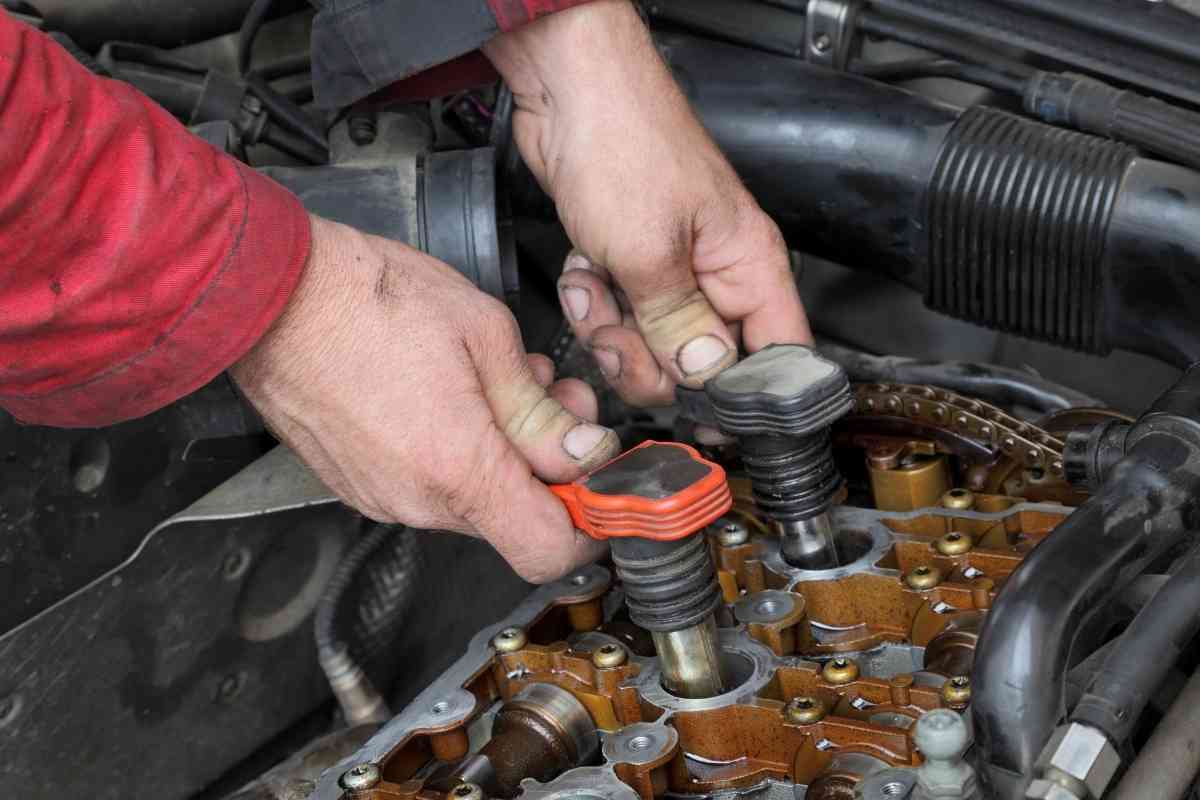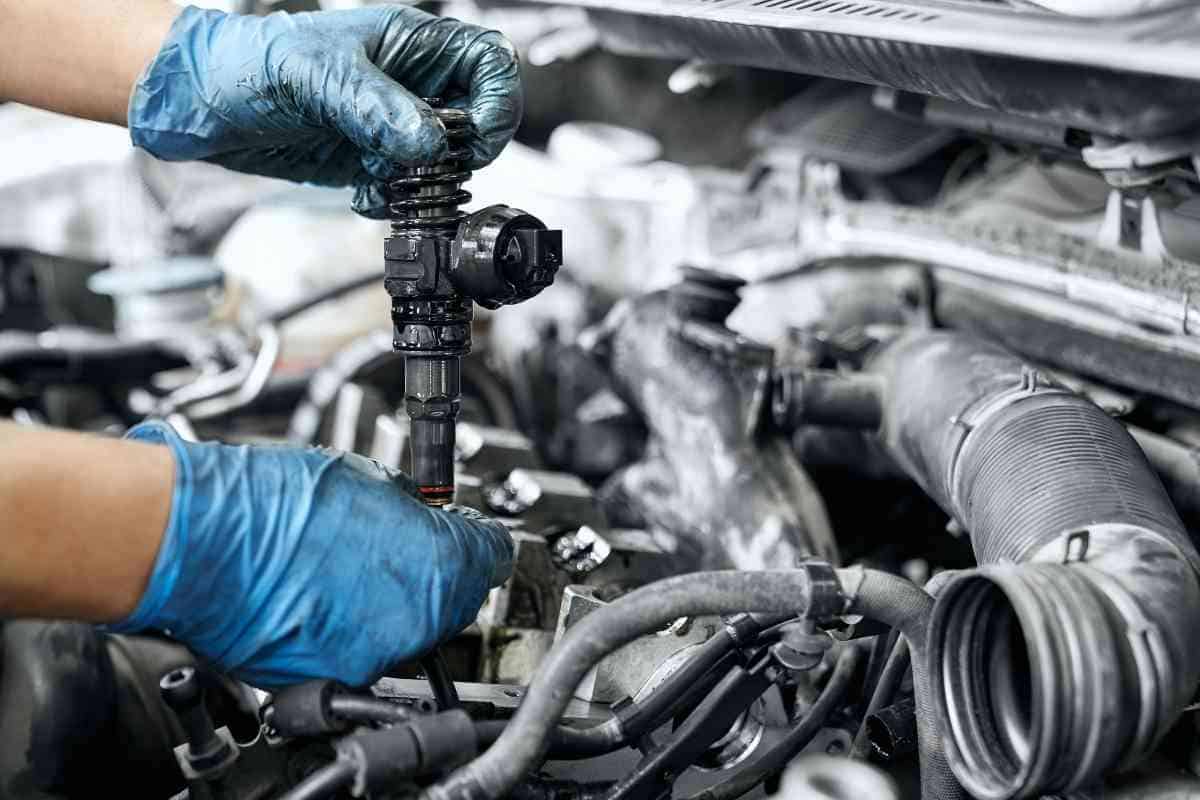How Long Do Ignition Coils Last & How Do You Replace Them?
Ignition coils are critical to keeping a vehicle running well because they power the ignition system, but knowing how long they last is important too.

How long do ignition coils last?
On average, ignition coils last for up to 100,000 miles depending on the engine type, vehicle type, and vehicle maintenance. This component does not fail easily, and when something goes wrong with them, it’s usually caused by another part, like the spark plug or fuel injector malfunctioning.
We have tested ignition coils in the past, and unless something goes wrong first, we always see the coils last this long. All research indicates that ignition coils are one of the most durable components in vehicles.
How Long Do Ignition Coils Last?
The average lifespan of an ignition coil is about 100,000 miles, but it can vary depending on how much use it gets as well as environmental factors like temperature, humidity, and dust.
Ignition coils are a crucial part of the ignition system, but it is not always easy to know how long they will last. They don’t wear out easily, and many ignition coil issues typically occur because another part fails first.
There are various reasons why they might go bad before they reach 100,000 miles, but it’s rare that the ignition coil fails on its own without excessive wear and tear. They are also cheap to fix and replace.
How Often Should The Ignition Coils Be Replaced?
The average lifespan of an ignition coil is about five years, but this can vary depending on the quality of the coil and how often a person drives their car. It might last for less time depending on usage.
The ignition coils are important parts of the car’s engine. The coils should be replaced every 100,000 miles or so.
We should replace them when they are no longer working properly or if they have been damaged in an accident. Replacing them is not expensive, improving fuel economy, reducing emissions, and increasing horsepower.
How To Replace Ignition Coils
The most common problem with ignition coils is that they can fail prematurely, which occurs for multiple different reasons. And when it does happen, they need to be replaced.
Follow these steps to install and replace the ignition coils in any vehicle safely.
Remove The Negative Battery Cable
First, remove the negative battery cable for safe access.
Find The Existing Ignition Coil
Next, locate the existing ignition coil or coil packs. This can be found by following the distributor cap wire.

Unplug Wiring Harness
Before moving any further, unplug the wiring harness.
Remove Coil
Once the electrical power is disconnected, the coil can be removed by removing the retaining bolts.
Check The Spark Plugs
Check to see if the spark plugs are intact or if they should be replaced now too.
Use Dielectric Grease To Install The New Coil
When inserting the new ignition coil, use dielectric grease, so the coil doesn’t stick to the spark plug.
Reattach The Wiring Harness
After putting the new coil into place, it will click to indicate it’s locked. This means the wiring harness can be reconnected now.
Connect The Negative Battery Cable
Lastly, don’t forget to reconnect the negative battery cable before closing the hood.
What Causes Ignition Coils To Go Bad?
Ignition coils are responsible for providing the voltage necessary to create the spark that ignites the air and fuel mixture in the car’s cylinders. This turns low current into power, but this comes with the risk of failure too.
Some of the causes of ignition coils going bad include overheating, bad wiring, faulty spark plugs, and ineffective fuel injectors.
Overheating
The ignition coils help to create the electric current for the spark plugs. They are located near the spark plugs and will go bad if there is an overheating issue with the engine.
When the engine or vehicle overheats, this will cause the ignition coils to go bad. This is because they are not the most durable component, so excessive heat would cause them to melt.
Faulty Spark Plugs
The ignition coil creates an electric spark with the spark plug. The spark plug has an electrode that sits inside each cylinder and an electrode that sits outside of the cylinder.
When the engine’s piston reaches a certain point, it causes a change in current flow, which creates a high-voltage electric charge across the two electrodes.
This charge is strong enough to jump over to other parts of the engine and start it up, igniting all of its cylinders at once. The spark plug ignites fuel, starting the vehicle.
But when the spark plugs are faulty or bad, this means the car won’t start, and the ignition coil won’t work. This is a common reason why ignition coils go bad.
Bad Wiring
Wiring is one of the most overlooked aspects of vehicle maintenance, and it can be a major cause for concern. Improper wiring can lead to various problems, such as ignition coils going bad before they should.
When this happens, it’ll impact much more than just the spark plugs too.
Ineffective Fuel Injectors
An ineffective fuel injector can cause an ignition coil to go bad or fail. This is rare, but it can happen when fuel injectors clog, and fuel injectors do require occasional cleaning.
What Happens When Ignition Coils Go Bad?
The car’s performance will decrease significantly if the ignition coil is bad, worn, or outdated. And this tends to happen in multiple ways depending on exactly what is causing the ignition coil problem.
Drivers can expect decreased fuel economy, a misfiring engine, and the risk of a stalling engine.
Decreased Fuel Economy
Bad or faulty ignition coils put added stress on the vehicle. This results in faster fuel burn and decreased fuel economy because the car battery cannot send the proper amount of power to the spark plugs.
It can also cause damage to the spark plugs, which will only further decrease the fuel economy. Nothing good can come from excessive driving with bad ignition coils.
Engine Misfiring
Backfiring or a misfiring engine signifies that the ignition coils have gone bad and need to be repaired or replaced. Both of these instances are worrying and should be addressed quickly.
The engine may not be running smoothly, and it may be difficult to start. The car might also have a rough idle or an uneven power band.
When this happens, we don’t recommend continued starting and stopping of the engine either. Repeating this process could cause a complete vehicle shutdown while damaging key engine components like the catalytic converter.
Vehicle Stalling
Ignition coils are one of the most overlooked parts of a vehicle. They are responsible for providing the spark that starts the combustion process.
If there is a problem with an ignition coil, it will lead to bad engine performance and may cause the vehicle to stall unexpectedly. They should be checked regularly to ensure they are working properly and replaced if necessary.
Key Takeaways
- On average, ignition coils will last for up to 100,000 miles depending on the vehicle type, driving style, and level of maintenance.
- Ignition coils can go bad before 100,000 miles because of overheating, faulty spark plugs, bad wiring, or clogged fuel injectors.
- When the ignition coil goes bad, it can cause decreased fuel economy, engine misfiring, and vehicle stalling.
